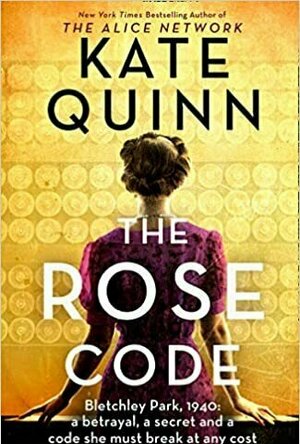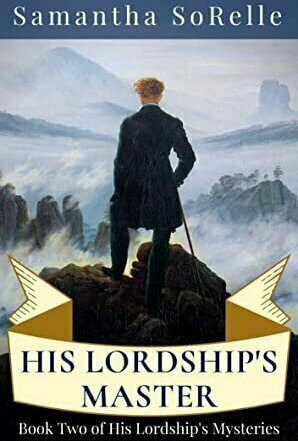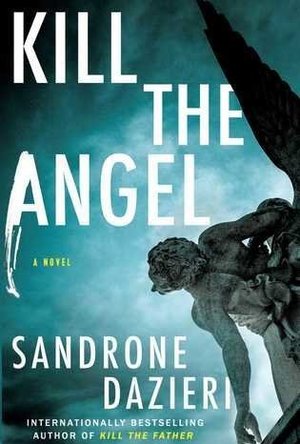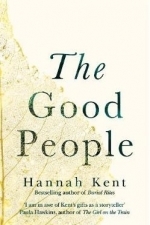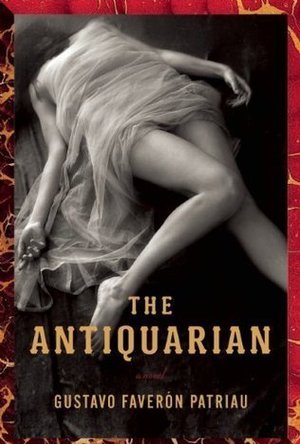
The Antiquarian
Book
A Los Angeles Times Best of Summer pick An Amazon Best Book of the Month (Mystery, Thriller &...
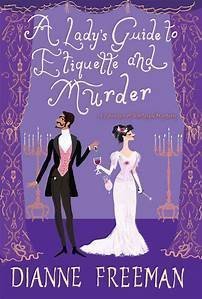
A Lady’s Guide to Etiquette and Murder
Book
In this exciting historical mystery debut set in Victorian England, a wealthy young widow encounters...
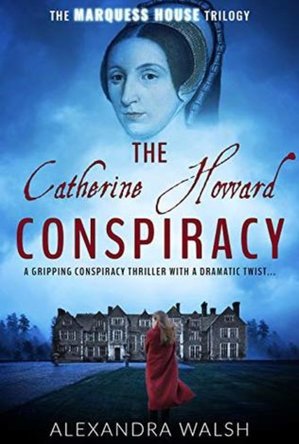
The Catherine Howard Conspiracy (The Marquess House Trilogy #1)
Book
A timeshift thriller that will have you completely gripped! Perfect for fans of Dan Brown, Philippa...
Tudor Period Historical Fiction Thriller
ClareR (6067 KP) rated The Rose Code in Books
Jun 26, 2022
I actually listened to this on an audiobook, and although there were one or two pronunciation issues, I thought the narrator Saskia Maarleveld did a really good job. She added extra character to the three main women in the story - all friends, but all so different from one another: the debutante with fluent German; the practical East Londoner who wants to escape poverty; the local village girl who, it turns out, is a genius cryptographer.
I really enjoyed the way that these characters were developed, and how their unlikely friendship grew. The secondary characters were also all interesting and well-developed, and all came together at the climactic end. I was gripped throughout, listening at every opportunity. And the ending really was a breathless race to the finish.
Oh, and there’s a rather large part given to Prince Phillip as well. There is a foot placed in fact, but I’m not really sure just how much. Oslo Kendall did exist, and was Prince Phillips girlfriend (or friend, at the very least) before he married Queen (then Princess) Elizabeth. I liked the “is it true or not” element.
If you like war time fiction, and have an interest in Bletchley Park - or want to find out more - you might just enjoy this as much as I did.
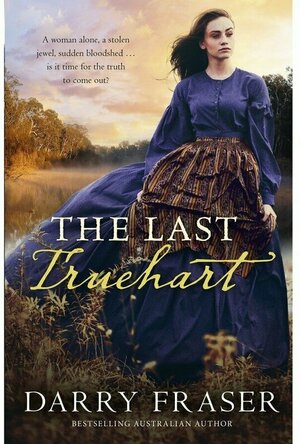
The Last Truehart
Book
1898, Geelong, Victoria. Stella Truehart is all alone in the world. Her good-for-nothing husband has...
Merissa (13765 KP) rated His Lordship's Master (His Lordship’s Mysteries #2) in Books
Apr 25, 2022 (Updated Jun 24, 2023)
We leave the grime and corruption of London behind us as we travel to Scotland with Alfie and Nick. However, what we find there is cold, wet, and mysterious! A big old house, an urban legend of the 'Wicked Master', plus a murder or two, and you've got plenty to keep you occupied.
I loved how the relationship between Alfie and Nick just went so much deeper. Their love is true, even if they're not at it like rabbits all the time! (Understandable considering the time period).
There are so many layers woven into this story and I love it all. I won't go into detail as I don't want to ruin it for anyone else but nothing is as it seems. The closest I got was with a couple of the female characters. I was sure something was going on with them, but I did not imagine it would be what it was!
For a great historical mystery with some MM tenderness as an added bonus, I can absolutely recommend this.
** same worded review will appear elsewhere **
* A copy of this book was provided to me with no requirements for a review. I voluntarily read this book, and the comments here are my honest opinion. *
Merissa
Archaeolibrarian - I Dig Good Books!
Apr 22, 2022
Sensitivemuse (246 KP) rated Kill the Angel in Books
Jun 24, 2018
Oh lordy. Lordy lordy lordy. I don’t know what to say except, yes one more time. Lordy. I finished this book and screamed. And it’s a good reaction.
This book doesn’t disappoint. It sets the bar higher than the last one, Kill the Father. It would be best if you do read them in order as you do need the background information surrounding Dante. Plus, it does add more substance to the characters.
This one was definitely more action packed than previous. As it involves a great deal more victims and there’s definitely more layers to peel once the mystery starts to unravel and we get closer to Giltine. And it’s not yet over! There’s giant revelations at the end and you’re left with a heart stopping ending.
There are many twists and turns to go through in the book; old and new characters are mentioned, and of course Colomba is in a bind and goes through very hefty events and you marvel at her mental and emotional strength. Dante is likable in his own quirky way and both him and Colomba work so great as a team, even though they have their differences. There’s a more deeper level of understand between the two of them and there is a hint of a romance. I don’t see it myself as I’ve always seen Dante and Colomba more as a sibling like relationship. (I would have liked to see Dante and Brigitte together, they seemed like they could go along well!)
There’s some major blindsiding happening in the book, you realize Giltine is both victim and perpetrator. There’s still more to uncover in the mystery and by the time we do come to the conclusion it would be a massive atom bomb waiting to drop. However on a side note, I do enjoy how Dazieri brings in these references to various historical events (Chernobyl for one) and various conditions and illnesses to make you think and realize there’s actual conditions out there that exist and people do suffer from them. It makes the plot different and substantially prominent to make this book memorable.
The plot is very engaging and you’re pretty much on the edge in the last third of the book. The last few chapters really pack it in and they were one of the most exciting chapters I have ever read in a book so far. I’m still overwhelmed and blown away by the last page. Gah! I can’t wait for the next book!
Definitely recommended. The series is going to be one of the best I have read so far in my lifetime.
BookwormMama14 (18 KP) rated The Secret of Pembrooke Park in Books
Jan 2, 2019
England, 1817, Abigail Foster and her family are in the midst of a financial crisis that could ruin them forever, when an offer to let Pembrooke Park is brought before them. The house has been vacant for almost 20 years, and there is a lot of clean up needed before they can move in, but the terms seem too good to be true. This is just the opportunity the Foster’s need so they can begin to rebuild their lives. Abigail and her father travel to the village of Caldwell to begin fixing up the property. It is not long before whispers and rumors make it to Abigail’s ears regarding the previous inhabitants. Whispers of treasure and murder and ghosts. What happened here so many years ago? Will Abigail be able to uncover the truth? Clues are found and mysterious letters are sent to Abigail from what appears to be someone who lived at Pembrooke Park. Does the miniature doll’s house hold the key to where the treasure was hidden? Abigail befriends the previous steward’s daughter, Leah Chapman, who has her own mysteries of the past that she is concealing. William Chapman, Leah’s sister and the local pastor, seems to become interested in Abigail, but will Miss Foster’s sister, Louisa sweep him off his feet as she does to every man she meets? And Mr. Chapman is not the only man that has taken an interest in Abigail. Truth, faith and love are the primary factors guiding our players. “Lay not up for yourselves treasures upon earth, where moth and rust doth corrupt.”
I have not enjoyed a book so much as I enjoyed reading The Secret of Pembrooke Park. I stayed up late many a night reading when I should have been sleeping. Most definitely a page turner if I ever read one. I cannot praise Mrs. Klassen enough for her fine works. The historical accuracy, the depth, the feeling. Creative liberties are used in regards to classes intermingling, but that’s what makes her books so intriguing. The suspense and mystery was mild (compared to the thrillers my husband reads), but it was enough to make my head turn at the sounds of my own house creaking in the night. I am looking forward to her next release. I told my husband that I want the rest of Julie Klassen’s books for Christmas this year!
As a part of their blogger review program, I received a free copy of The Secret of Pembrooke Park from Bethany House Publishers. All opinions expressed are mine alone.
Zuky the BookBum (15 KP) rated The Good People in Books
Mar 15, 2018
This is my first Hannah Kent novel, and I absolutely loved it! As far as Historical Fiction goes, its not the best Ive ever read, but I always have a soft spot for it, so it always gets a good rating from me!
I really enjoyed this story, even though it honestly doesnt feel like an awful lots happens until right at the end. Kent is so good at transporting you into her story that you feel as though you are living with the characters.
This novel is set in Ireland in 1825, filled with small village life, religion, and superstitions. Kent is really good at weaving a beautiful story that sucks you right into the early 1800s. Youre instantly immersed in the villagers lives, and especially Noras misfortune and troubles.
Characters in this one are stunningly done. There are three main characters we follow closely throughout, Nora, Mary, and Nance. Its amazing how easy it was to get to know them, and how easily you can feel so many different emotions with and for them.
In terms of story, I did think this one was going to be that little bit more fast paced and have more elements of a mystery, but even without those two things, this is still a terrific read! I do really love a slow paced historical fiction, even ones like these where it doesnt feel like much is actually happening in the book. This is definitely more of a character study kind of book, rather than plot driven book.
Overall, I really liked this one! Im sorry the review is short but I honestly dont really know how to review this other than saying its beautiful, fantastically well written, and pretty emotional (I cried at the end)! Definitely pick this up if youre looking for a slow drama.
<i>Thanks to Netgalley and Little, Brown and Company for sending me a copy of this book in exchange for an honest review.</I>
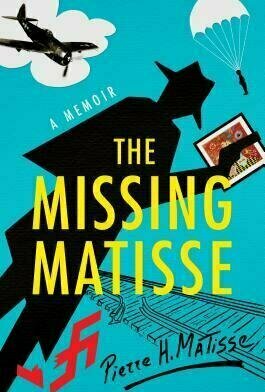
The Missing Matisse: A Memoir
Book
Nazi planes were bombing Paris the day a lifelong, more personal war began for Pierre. It was the...
